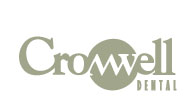Why Flossing Is Important
By the time we reach adulthood, the vast majority of us understand that a good oral hygiene regimen includes brushing, flossing, and rinsing with mouthwash, ideally after every meal, to remove food and bacteria that could be harmful to oral health. With the busy modern lifestyle, however, it's only natural to prioritize daily activities, and flossing can fall by the wayside.
What you might not know is just how important flossing really is, especially if you want to maintain your oral health and preserve your beautiful smile as long as possible. Brushing simply isn't enough to keep your mouth clean, although it can certainly do wonders for the surfaces of your teeth. You need to floss if you want the best chance to keep your mouth healthy for years to come. Here are a few reasons why flossing is so important.
Get Between Teeth and Below the Gum Line
As mentioned above, proper brushing is a great way to remove biofilm that can build up on the surface of teeth and on soft tissue like gums, cheeks, and your tongue. However, the bristles of your toothbrush can't reach between your teeth or below the gum line, where food and bacteria can get lodged and lead to the formation of harmful and unsightly plaque and tartar.
Prevent Plaque and Tartar Buildup
When biofilm isn't removed, it's only a matter of time before it begins to build and harden, forming sticky plaque that attracts even more food and bacteria, eventually leading to the hard-to-remove, calcified deposits known as tartar. These substances can be removed by your dentist or hygienist, but this complicates your dental cleanings and contributes to tooth decay and gum disease, which you'd probably rather avoid.
Prevent Gum Disease and Tooth Decay
When plaque and tartar form below the gum line and between teeth, they will eventually begin to irritate the gums and eat away at protective enamel, opening the door to serious concerns like gum disease and tooth decay. These diseases can not only cause symptoms like aches and pains, tender and bleeding gums, and bad breath, but without proper care, such conditions could contribute to abscesses, tooth loss, and other ongoing oral health concerns. The good news is that flossing can help to prevent such outcomes.
Improve Dental Visits
If you want to ensure quick and easy dental visits, the best thing you can do is practice good oral hygiene, including flossing and rinsing with mouthwash after you brush. When you clean between teeth and below the gum line, removing food and bacteria in the process, you'll preserve your oral health and ensure positive outcomes.
Don't hesitate to contact us with questions or to schedule an appointment.










